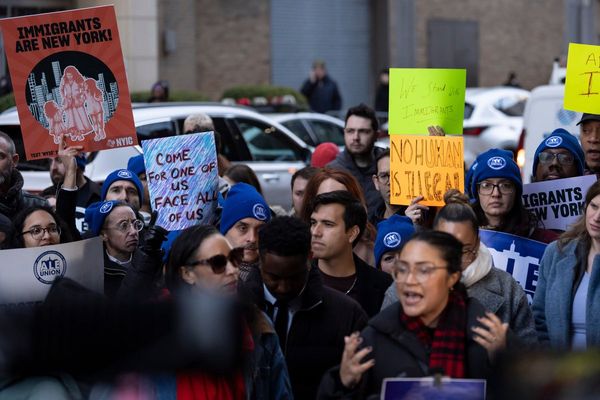
In the 1960s, two American psychologists coined the phrase “learned helplessness”. They had found that if you repeatedly gave an animal an electric shock from which there was no means of escape, the unfortunate creature would simply lie there and whimper – even if you later changed the parameters, and gave it a shock it could evade. The effect was also discernible in humans. “Like the dog, cat, rat, and fish, when a human being is faced with noxious events that it cannot control, its motivation to respond seems to be reduced,” they wrote.
The learned helplessness hypothesis comes to mind when I consider what is happening to the arts, particularly classical music, in England. Those who should know better at the supposedly politically independent Arts Council England (ACE) have come to consider it tolerable, even desirable, for organisations such as English National Opera and Britten Sinfonia – both leaders in their field – to have their regular funding withdrawn, their business models upended and their survival put in jeopardy because of the Conservatives’ levelling-up agenda.
This is despite the fact that the cost will be felt in jobs and livelihoods; the ability of young people to see opera or music cheaply or for free; the career development of British singers, musicians, directors, composers, designers and technicians; the country’s cultural infrastructure; and Britain’s global reputation.
It is not OK. Nor is it OK, to be clear, that parts of England are massively underserved in terms of cultural investment, a point that ACE’s defenders and beneficiaries understandably return to. No, it is really not OK – it’s a disgrace. But to attempt to correct the injustice through removing modest but crucial funding from organisations and artists that do good work for audiences is wrong. It is a destructive and cruel zero-sum game.
Then there is what is happening at the BBC: the announcement that the corporation is disbanding its 99-year-old choir, the BBC Singers, conducted in its time by Holst, Britten, Berio, Stravinsky and Boulez. It also plans to cut salaried positions in its English orchestras by 20%.
The backdrop to this, and the ultimate cause, is the Conservative government’s successive hammerings of the BBC, notably in 2015 when the then chancellor, George Osborne, forced the BBC to take on the £650m (and rising) annual cost of free TV licences to the over-75s, previously borne by the government. Nevertheless, a very large number of people have recognised that the BBC should not be taking a knife to the parts of itself that have, from the very beginning of broadcasting in Britain, been utterly fundamental to its public-service identity. Amid general outcry, 140,000 people and counting have signed a petition protesting against the cuts. The BBC’s audience, which it exists to serve, emphatically does not want this.
The BBC itself, by contrast, issued a cheery press release headlined: “New strategy for classical music prioritises quality, agility and impact”. The surreal mismatch between the upbeatness of the communique – surely a symptom of learned helplessness – and the bleak reality of the situation is exemplified by the fact that the manager in charge of the broadcaster’s choirs and orchestras, Simon Webb, told me he was so distressed when discussing the situation with the BBC Singers earlier this month, that the meeting had to be paused.
What does all this look like from the world beyond Portland Place? The BBC’s director general, Tim Davie, chief content officer, Charlotte Moore, and director of music, Lorna Clarke, might want to read what the great American composer John Adams thinks. “For all my life, the BBC has been the go-to access for its phenomenal orchestras and choruses,” tweeted the man who wrote Nixon in China and The Death of Klinghoffer. But now, “like the crazed character in The Banshees of Inisherin, it is determined to lop off its own fingers, one by one.”
None of this, of course, has got the front-page headlines that the furore over Gary Lineker’s tweets about the UK government’s asylum policy aroused, but the scandal comes from a similar place: it’s evidence of a BBC that is so traumatised by the endless shocks administered from the right that it is losing its head and its moral compass – as its audiences look on, appalled.
Another aspect of the learned helplessness I see in the arts is the idea that the sums of money under discussion are large. They are not large: BBC Singers is being destroyed and orchestras lopped for the want of £5m, a spokesperson confirmed. (By way of context, the BBC reportedly spent around £110m on the broadcast rights for the 2022 and 2024 Olympics.) English National Opera has cost British taxpayers £12.8m per year. Contrast that for a moment with Paris Opera, annually subsidised by French state to the tune of €100m (£88m).
The entire annual budget of ACE is £446m (£3m less than it was in 2010, incidentally). Together with dwindling local authority grants, that is what keeps the landscape of English arts and cultural provision afloat, all the way from Tullie House in Carlisle to Turner Contemporary in Margate. By contrast, “eat out to help out” – Rishi Sunak’s wheeze to so-say boost the hospitality industry – cost £849m over one single month in 2020.
Not only is that an awful lot of money, but it was money spectacularly ill-spent. (Even the hapless Matt Hancock, health secretary at the time, smelled a rat, calling the scheme “eat out to help the virus get about”.) Or take the £122m that the government is now trying to claw back from Medpro, the company recommended by Michelle Mone as a supplier of PPE to the NHS during the pandemic – that’s 25m surgical gowns that the health service said it could not use. You could keep ENO going for a decade on that.
Indeed, all of these figures pale into insignificance compared with the £4.4bn of public money paid to British banks to cover default and fraud on the state-guaranteed loans made to businesses during the Covid lockdowns. And yet, despite all of these costly misspends, or Tory interventions in the market (delete as you feel appropriate), the arts are regularly sneered at or attacked for their so-called reliance on the public purse. This is despite the fact that money spent on the arts is money spent on something useful: making life-changing cultural experiences available to children and young people; transforming towns and cities; boosting local economies and local pride; nurturing the kind of British talent that becomes the nation’s calling card overseas.
Watching these wounds being inflicted is painful. People who work in culture and the arts in this country are exhausted. The 30% cut to Arts Council England in 2010, when the now chancellor, Jeremy Hunt, was culture secretary, has done huge and long-term damage; so have repeated blows to local-authority income. The pandemic has brought cultural organisations to the edge. The only credible rescue mission at this point will come from an incoming Labour government. That mission must not be flunked.
Charlotte Higgins is the Guardian’s chief culture writer







